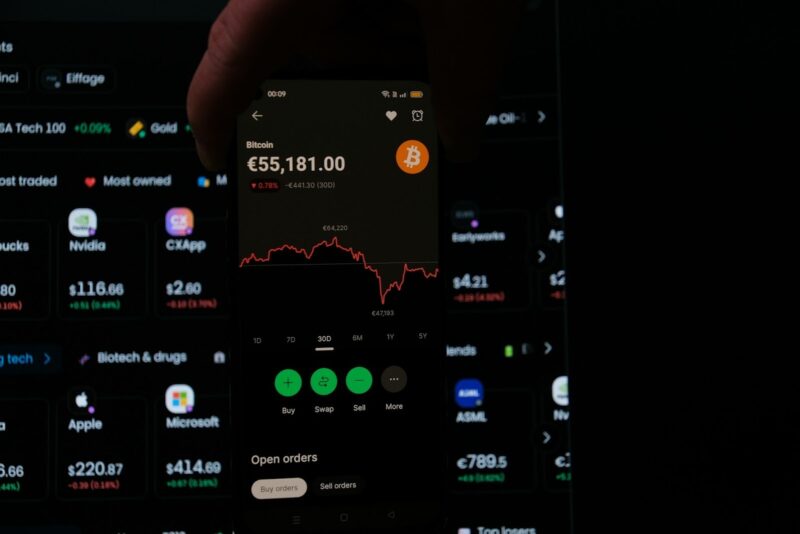Table of Contents
ToggleWhat Is Trading Options
What Are Options?
Options trading involves contracts that give buyers the right, but not the obligation, to buy or sell an underlying asset at a predetermined price before or on a specific date. These financial instruments are based on the value of underlying securities such as stocks. Essentially, when people ask what is trading options? they’re delving into a world where investors have the power to bet on future stock prices without necessarily owning the actual stocks.
Options come in two main flavors: calls and puts. A call option gives the holder the right to buy shares at a set price, while a put option grants the right to sell shares at a predetermined price. Both types offer unique strategies for investors aiming to profit from volatility in stock prices or hedge against potential losses.
Types of Options
Delving deeper into what trading options entails reveals two primary types: American and European options. The distinction lies mainly in when you can exercise them:
- American options allow holders to exercise their rights anytime before the expiration date.
- European options, conversely, limit execution strictly to the expiration date itself.
This fundamental difference affects strategy and pricing. For example, American options typically command higher premiums due to their flexibility.
Moreover, within these categories exist variations like:
- Vanilla Options: Plain call and put options with no special features.
- Exotic Options: These come with complex structures and conditions not found in standard options.
How Options Trading Works
The mechanics of how trading works hinge on understanding terms like strike price (the fixed price at which an option can be exercised) and expiration date (when the option expires). Here’s a simple breakdown:
- An investor buys an option contract from another party.
- If it’s a call option and the underlying stock’s price rises above the strike price before expiry, they might exercise their right to buy at that lower price.
- For put options, if prices fall below the strike point, selling might be advantageous.
- Investors can also trade these contracts instead of exercising them; many prefer this route since it doesn’t require full investment in underlying assets.
In essence, when someone asks what is trading options?, they’re exploring an advanced investment realm offering strategic opportunities beyond traditional buying or holding of stocks — though it comes with its own set of risks and complexities.

Advantages and Disadvantages of Trading Options
Advantages
When exploring what is trading options, it’s essential to understand the benefits they offer. Options trading presents unique advantages that set it apart from traditional stock trading. One significant benefit is LEVERAGE. With options, traders can control a large amount of stock for a fraction of the price, amplifying potential returns on investment without requiring substantial capital upfront.
Diversification stands out as another key advantage. Investors have the opportunity to spread their risk across various assets by incorporating options into their portfolios. This strategy can safeguard against market volatility and unexpected downturns.
Flexibility in strategies also plays a crucial role in the appeal of options trading. Whether aiming for speculative gains or hedging existing positions, options provide a toolkit for achieving various financial goals under different market conditions.
- Leverage allows significant exposure with minimal capital.
- Diversification reduces risk through varied investments.
- Flexibility supports tailor-made strategies for individual goals.

Disadvantages
Despite its attractions, trading options isn’t without its downsides. A prominent challenge is COMPLEXITY. For beginners wondering what is trading options, the learning curve can be steep due to numerous types of contracts and intricate strategies that might seem daunting at first glance.
Another critical disadvantage concerns EXPIRATION DATES. Unlike stocks, which can be held indefinitely, every option has an expiration date after which it becomes worthless if not exercised or sold. This time decay necessitates active management and strategic planning to avoid total loss of the investment made in purchasing these contracts.
Liquidity varies greatly among different options markets, potentially making it harder to execute trades at favorable prices quickly. Especially in less popular contracts, traders may find themselves facing wider spreads between bid and ask prices.
- Complexity requires a deep understanding and experience.
- Expiration dates impose time constraints on potential profits.
- Liquidity issues may hinder trade execution at desired prices.
Understanding both sides—advantages and disadvantages—is pivotal when diving into what is trading options. Armed with this knowledge, investors can make informed decisions tailored to their financial objectives while navigating the complexities of the market with confidence.





